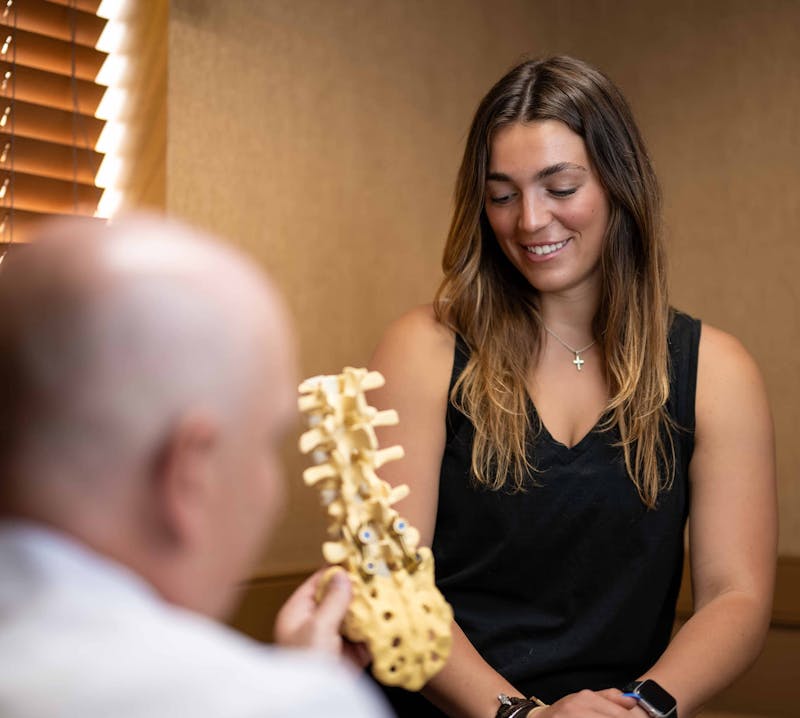
At the Center for the Functional Restoration of the Spine (CFRS), we know that nearly everyone experiences back pain at some point — from athletes and active adults to those who sit at a desk all day. While many cases are caused by muscle strain, sometimes back pain can signal something more serious that needs medical attention.
Here’s how to tell the difference and when it’s time to see a spine specialist.
Understanding Muscle Strain
A muscle strain occurs when the muscles or ligaments in the back are stretched or torn. This often happens from:
- Lifting something heavy or awkwardly
- Sudden twisting or bending
- Overuse during sports or exercise
- Poor posture or weak core muscles
Muscle strains are one of the most common — and fortunately, most treatable — causes of back pain.
Common Symptoms of a Muscle Strain
If your pain is due to a strained muscle, you might experience:
- Aching or stiffness that starts soon after physical activity
- Pain that improves with rest and gentle movement
- Localized tenderness or muscle spasms
- Difficulty standing up straight for a short period
Muscle strain pain usually improves within a few days to a couple of weeks with conservative treatments such as rest, gentle stretching, physical therapy, and over-the-counter anti-inflammatory medications.
When Back Pain Might Be Something More Serious
Sometimes, pain that feels like a simple strain could be linked to a deeper spinal condition. You should seek evaluation from CFRS if you experience any of the following:
- Pain that lasts longer than two weeks despite rest and basic care
- Numbness, tingling, or weakness in your legs, feet, or arms
- Pain that radiates down one leg (sciatica-type pain)
- Severe or unrelenting pain at night or pain that wakes you from sleep
- Loss of balance, coordination, or bowel/bladder control
- Pain following a fall, sports injury, or car accident
These symptoms may indicate issues such as a herniated disc, spinal stenosis, stress fracture (pars fracture), or nerve compression — conditions that require prompt diagnosis and specialized care.
How CFRS Evaluates Back Pain
At CFRS, our spine specialists perform a comprehensive evaluation that includes:
- A detailed discussion of your symptoms and activity level
- A targeted physical exam
- Advanced imaging (such as X-ray, MRI, or CT scan) if needed to identify structural issues
Our goal is always to find the root cause of your pain — not just treat the symptoms.
Treatment Options: Conservative First, Always
For most patients, back pain can be managed without surgery. At CFRS, our team prioritizes non-operative treatments, including:
- Physical Therapy – To strengthen supporting muscles and improve flexibility
- NSAIDs (Non-Steroidal Anti-Inflammatory Medications) – To reduce inflammation and pain
- Acupuncture – To relieve tension and promote healing naturally
- Pain Management Injections – For targeted relief when other measures aren’t enough
If conservative care doesn’t bring relief, our specialists will discuss minimally invasive surgical options that can address underlying issues while minimizing recovery time.
When in Doubt, Get It Checked Out
Back pain that doesn’t improve or feels “different” shouldn’t be ignored. The earlier you identify the cause, the better your chances of recovery — and of avoiding long-term complications.
At CFRS, our experienced team helps patients of all ages find answers and relief through compassionate, evidence-based care.
Schedule a Consultation
If you’re not sure whether your back pain is from a muscle strain or something more serious, the team at CFRS can help. Let’s get to the root of your pain and get you back to doing what you love.
📍 The Center for the Functional Restoration of the Spine
📞 732.380.1212
🌐 myspinedoc.com

